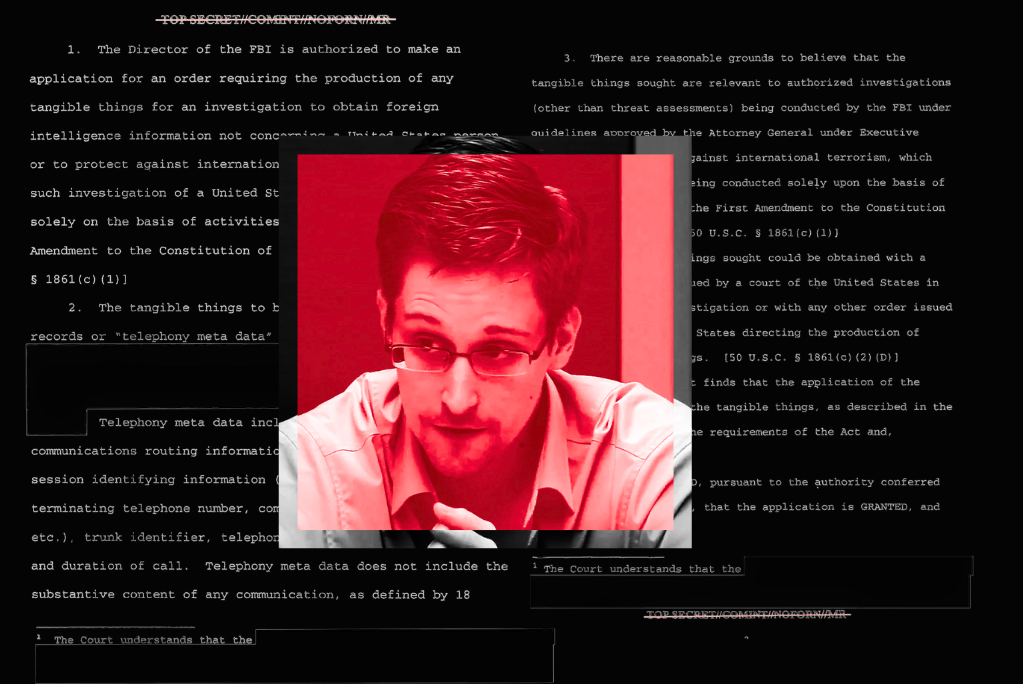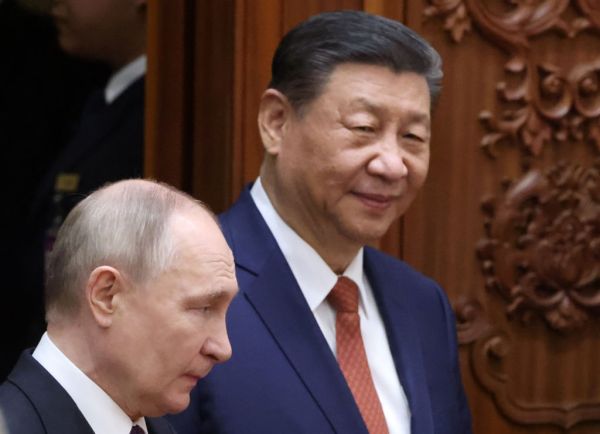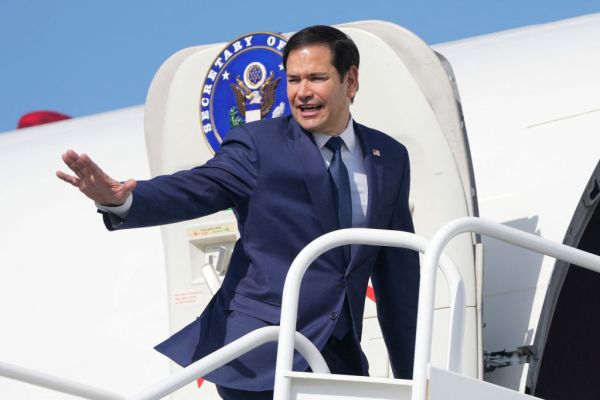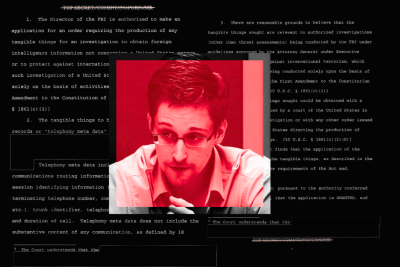Nearly a dozen years have passed since the Department of Justice filed espionage charges against Edward Snowden for leaking top-secret National Security Agency documents, which a House Intelligence Committee report described in 2016 as the “largest and most damaging public release of classified information in U.S. intelligence history.” Yet Snowden—who sought asylum in Russia and has been a Russian citizen since 2022—is back in the news, because his disclosures have become a discussion topic in the confirmation process for Tulsi Gabbard as director of national intelligence.
One aspect of these disclosures that has received little attention over the years is how Beijing’s leaders responded to his leaks, even as his leaks were condemned by officials across the political spectrum.
A bipartisan 2016 letter to President Obama, signed by all House Intelligence Committee members, was blunt: “Mr. Snowden is not a patriot. He is not a whistleblower. He is a criminal.”
The report “makes clear that Edward Snowden was an egotistical serial liar and traitor whose unauthorized disclosures of classified information have jeopardized the safety of Americans and allies around the world,” said Sen. Tom Cotton in 2016, at the time of the report’s release.
“He is without a doubt, not just a traitor, but the information that he’s delivered has had a devastating impact on our intelligence collections,” remarked then-Sen. Marco Rubio. “And I can tell you we know less about our adversaries today than we need to know or should have known because of the information he released.”
No example illustrates Rubio’s point better than Snowden’s disclosures regarding the Chinese Communist Party. Snowden exposed operations targeting China, severing an intelligence capability that could have yielded a sustained flow of critical information on Beijing’s highly secretive leadership structure, deliberations, and decisions. His actions also spurred China to overhaul its communications network.
One of these programs, which President Barack Obama authorized and Snowden leaked, involved intelligence collection aimed at Huawei, a telecommunications company founded in 1987 by Ren Zhengfei, an engineer who had served in the People’s Liberation Army Engineering Corps. That the Obama administration would lawfully target Huawei is no surprise.
The Chinese government designated Huawei as a “national champion” in 1996, fueling the company’s rapid global growth through tens of billions in subsidies, low-interest financing provided by state-owned banks to Huawei’s customers in developing nations, and robust support from the Foreign Ministry and government officials.
Prior to 2013, American officials, among others, had expressed growing national security concerns about Huawei and its relationship with the authoritarian government.
A 2009 Pentagon report, for example, noted that “Information technology companies, including Huawei …maintain close ties to the PLA and collaborate on R&D.” The Wall Street Journal reported that Sprint Nextel Corporation excluded Huawei from a major contract in 2010 “because of national security concerns,” and in 2011, the Commerce Department barred Huawei’s participation in the development of a national wireless emergency network in the U.S. due to “national security concerns.” A bipartisan 2012 report from the House Intelligence Committee concluded that Huawei “cannot be trusted to be free from foreign state interference and thus pose[s] a security threat to the United States and to our systems.”
Signals intelligence is a critical tool to gather electronic information on the intent and capabilities of U.S. adversaries. In the case of China, the U.S. had penetrated Huawei’s networks undetected until the Snowden leak.
Snowden’s leak came just three months after Xi Jinping had consolidated power in China, and by then Beijing had already set a course of confrontation with its neighbors and the United States.
In 2009, for example, under then-President Hu Jintao, the CCP officially declared its “indisputable sovereignty” over most of the South China Sea (the so-called nine-dash line), and Hu directed the PLA to accelerate military modernization and “make extended preparations for warfare in order to make greater contributions to safeguard national security.” Moreover, the Pentagon’s 2006 Quadrennial Defense Review noted:
Since 1996, China has increased its defense spending by more than 10% in real terms in every year except 2003. Secrecy, moreover, envelops most aspects of Chinese security affairs. The outside world has little knowledge of Chinese motivations and decision-making or of key capabilities supporting its military modernization.
After Snowden’s disclosures that the U.S. had penetrated Huawei, Beijing shuffled its technology and infrastructure priorities.
In June 2014, the South China Morning Post reported that “China had started to build the world’s longest quantum communications network. … Revelations by Snowden that the US is targeting ‘network backbones,’ through which huge amounts of data are transmitted, convinced Chinese leaders that developing the next generation of internet infrastructure was a policy priority.”
China aims to develop a quantum-based, space-to-ground global network that would be more secure from hacking than traditional digital communications networks. The U.S.-China Economic and Security Review Commission recently assessed that China now “appears to be an early leader in quantum communications,” having launched the world’s first quantum communications satellite and connecting two ground stations with quantum key distribution. Though some experts, including those at NSA, have expressed skepticism about the feasibility of deploying and operating such a large integrated network, the national security implications of a successful system could be significant, including, among other challenges, making it even more difficult to intercept and decipher sensitive Chinese government and military communications.
At a 2023 congressional hearing on Advancing American Leadership in Quantum Technology, Paul Dabbar, Department of Energy undersecretary for science during the first Trump administration, testified that China accelerated its quantum technology programs following Snowden’s disclosures. “It is no coincidence that right after Snowden defected to China and divulged all he knew on our signals intelligence capabilities,” Dabbar stated, “China ramped up construction of the world’s largest quantum network for security, and development of their quantum computing.”
Moreover, in September 2024, the nonprofit Information Technology and Innovation Foundation released a report, How Innovative is China in Quantum? The report notes:
After the 2013 Snowden leaks, President Xi Jinping, concerned about potential vulnerabilities in China’s communications, prioritized quantum communications and security in the 13th Five-Year Plan. Since then, China has been moving swiftly, solidifying its lead in the global race for secure communications, particularly in QKD [quantum key distribution], which is perhaps the most advanced subfield of secure communications, leveraging the principles of quantum mechanics to create a virtually unbreakable method of encrypting data.
Since Xi consolidated power in 2013, China has clearly become our most powerful geopolitical threat. Snowden’s leak cost us critical access to a network we’d penetrated, depriving U.S. policymakers of potential high-value insights into the thinking, decision-making processes, and directives of senior Chinese officials. China responded to the disclosures by vastly ramping up its cybersecurity measures and counterintelligence efforts, making it more difficult for U.S. intelligence to pierce the authoritarian regime’s secrecy.






Please note that we at The Dispatch hold ourselves, our work, and our commenters to a higher standard than other places on the internet. We welcome comments that foster genuine debate or discussion—including comments critical of us or our work—but responses that include ad hominem attacks on fellow Dispatch members or are intended to stoke fear and anger may be moderated.
With your membership, you only have the ability to comment on The Morning Dispatch articles. Consider upgrading to join the conversation everywhere.